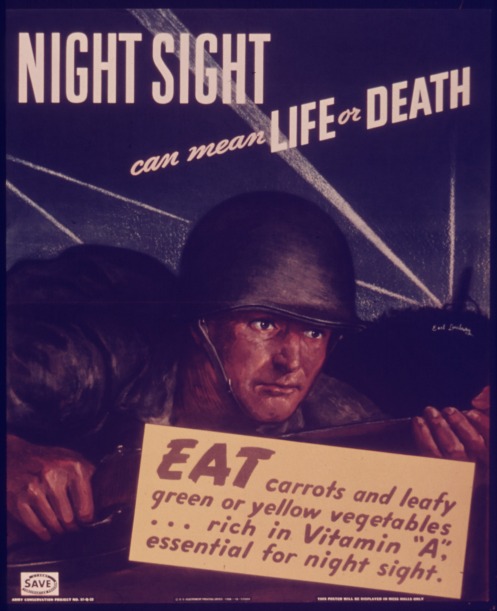I like to to joke that I’m short because I started drinking coffee too young. It’s generally common sense not to give young people caffeine given their seemingly endless natural energy. There’s also a common understanding coffee is probably bad for kids. And despite a lack of any evidence, any time a kid asks to try coffee a well-meaning adult will certainly mumble “it’ll stunt your growth.”
This morning, I took to “the google” to find out why we still perpetuate such an unfounded myth. The answer? Marketing!

Image via wjm2234.com
Historically, there’s always been a back-and-forth on the potential benefits or dangers of drinking coffee, notably when the beverage was banned for health reasons as far back as the 1500s in Mecca, and in 1675 by King Charles of England.
Post also invented a grain-based breakfast beverage called Postum, advertised as a caffeine-free coffee alternative, that was popular through the 1960s (and is still (alarmingly) in production). He subsequently generated millions from vilifying coffee, advertising all kinds of pseudo scientific reasons that you should stay away from coffee.
All of this led me to wonder, what other myths do we believe that marketing feeds us?
Brown Eggs are Healthier For You
Believe it or not, price isn’t actually an indicator of how healthy something is.
Back in 1961, the American Heart Association curtailed everyone’s egg consumption when they announced high cholesterol intake was linked to heart disease. Egg yolks have an estimated 200 milligrams of cholesterol, and they recommended daily cholesterol consumption shouldn’t exceed 300 milligrams. Sayonara, sunny side up.
Since then, those myths have been debunked, to the extent we’ve found the yolks are the most nutritious part of the egg.
Back to which color eggs are healthier.
Brown eggs typically come from hens that are larger, and because it’s more expensive to feed a bigger bird, their product is more expensive. Otherwise, brown and white eggs are pretty split down the middle in regard to nutrition, taste and baking benefits.
Yet, when we’re pushing our grocery cart and see a brown cardboard package with a green label, we either subconsciously or consciously recognize that product must be healthier and worth the extra expense. Unless there’s an organic stamp or some other official signifier, the only extra health benefits found in brown eggs might be the fiber in the packaging.
We Only Use 10% of our Brains
Convenient, isn’t it? To believe we aren’t reaching our full potential collectively or individually because the majority of our brainpower remains untapped.
A quick Google search will shatter any hopes of skyrocketing your mental capacity; the idea our brains aren’t operating at their full potential is laughable at best.
So where does that myth come from? No one really knows definitively. One popular theory says the journalist Lowell Thomas misquoted the brilliant American psychologist William James as saying the average person specifically “develops only 10 percent of his latent mental ability” in a preface to Dale Carnegie’s blockbuster self-help book “How to Win Friends and Influence People.”
Carrots improve night-time vision

Image courtesy of Flickr user US National Archives Bot
Your mom always told you carrots are good for you, which is true. They’re even good for your eyes specifically, though they don’t necessarily improve your eyesight. Where this theory goes awry is being able to see better in the dark, which if that seems oddly specific, it’s because it is.
Surprisingly enough, this myth was a diversion tactic from WWII. A new technology (Airborne Interception Radar [AI]) helped the Royal Air Force pinpoint enemy bombers before they crossed the English Channel. Rather than spilling secrets of how they got their advantage to the enemy, they attributed newfound success after nightfall to eating a lot of carrots.
Combined with the creation of a Dr. Carrot character to encourage growing victory gardens, the idea that carrots improve sight is still a firm belief in the American, English and German psyches.
You can read the full story on the Smithsonian website.
Not unlike the axiom “an apple a day keeps the doctor away,” a new one to adopt could be “a healthy dose of skepticism keeps marketing promises at bay,” though its unnerving how many ideas have seeped into culture as unfounded fact. So learn from the past and keep your marketing honest because goodness knows what could become of it.

